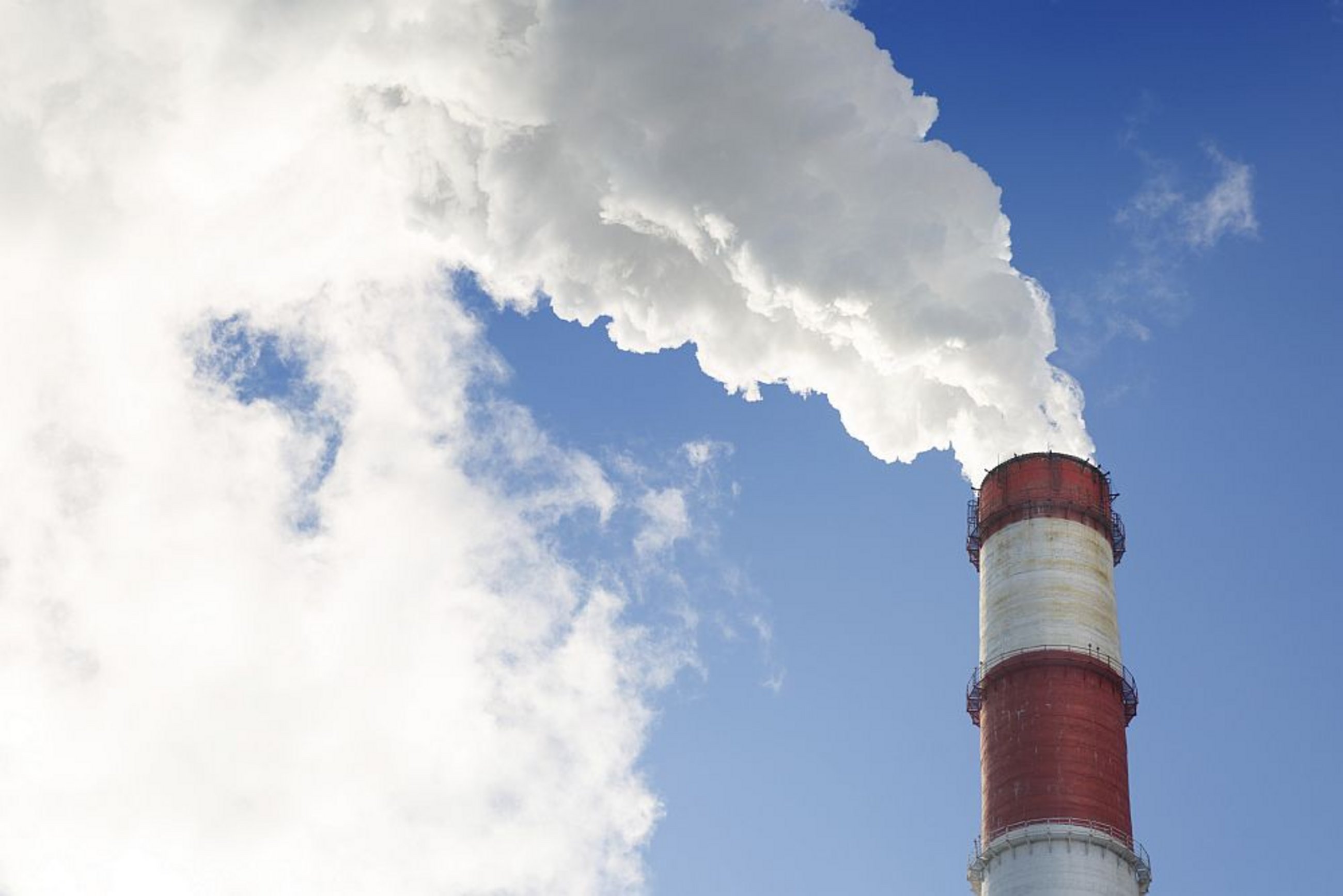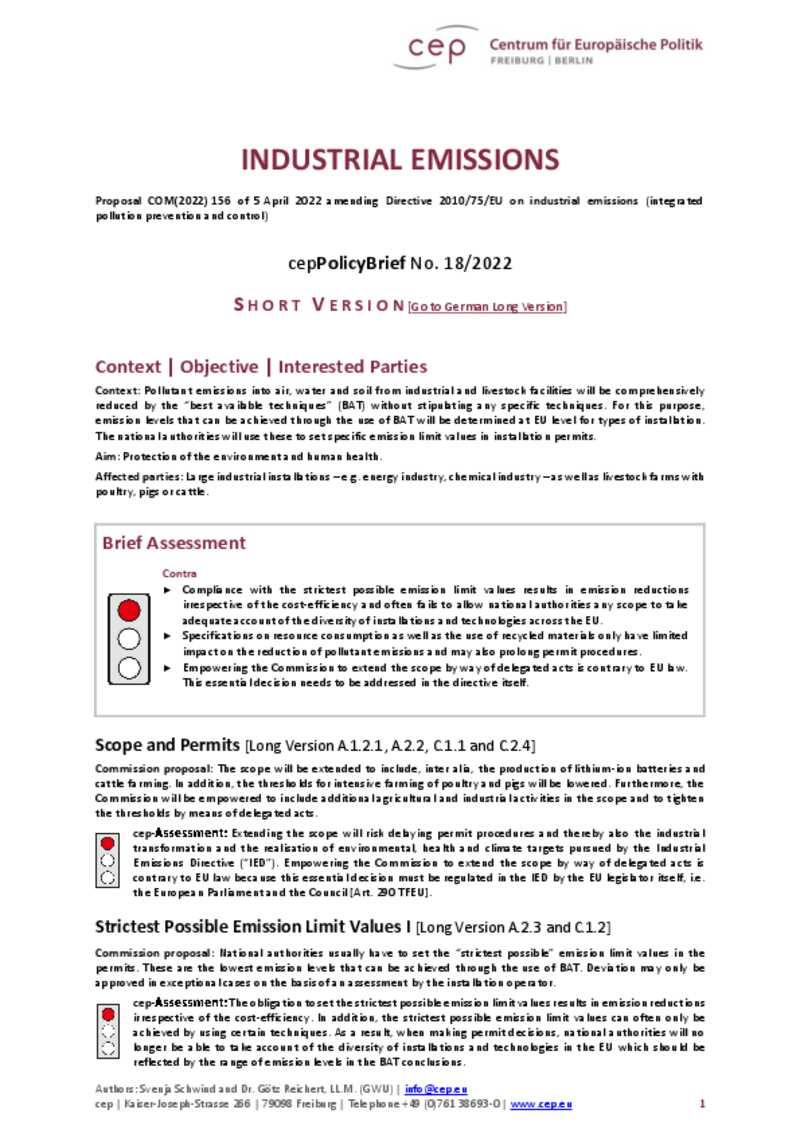
Environment
Industrial Emissions (cepPolicyBrief COM(2022) 156
cepPolicyBrief
"The obligation to set the strictest possible emission limits leads to emission reductions irrespective of the cost efficiency," warns Svenja Schwind. The cep climate expert has analysed the proposed directive and the planned delegated acts with cep jurist Götz Reichert. "Extending the scope risks delaying the permit processes and thus the industrial transformation towards more environmental, health and climate protection. In addition, the Commission's authorisation to extend the scope through delegated acts is contrary to EU law," emphasises Reichert. According to Article 290 TFEU, the decision is solely up to the legislators in Parliament and Council - and not the Commission.
According to Svenja Schwind, the strictest possible emission limits can often only be achieved by using certain techniques. This would deprive national authorities of the possibility to take into account the diversity of installations and technologies in the EU when deciding on permits. The decision-making rights of the Member States would be effectively reduced to zero. There is a risk of disproportionately high costs and administrative burdens. This is also against EU law. Instead of setting binding regulatory requirements for individual installations, market-based incentives should streamline the permit process, for example by pricing resource consumption.
The cep researchers are concerned about double regulation. "The CO2 emissions of certain industrial plants are already regulated through the EU Emissions Trading Scheme," explains Schwind.
Download PDF
| cepAnalyse (publ. 12.20.2022) | 182 KB | Download | |
 | |||




